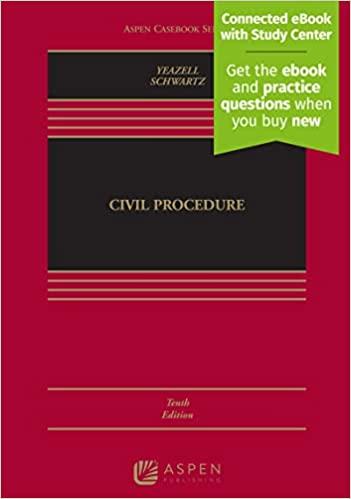Question
In February 2003, while serving as a civilian contractor, Michael D. King lived in a dormitory at the Prince Sultan Air Base in Saudi Arabia.
In February 2003, while serving as a civilian contractor, Michael D. King lived in a dormitory at the Prince Sultan Air Base in Saudi Arabia. During his stay there, King kept his personal laptop computer in his room and connected it to the base network. All users of the base network signed agreements indicating that they understood that their communications using the base network were subject to monitoring.
An enlisted airman was searching the base network for music files when he came across King's computer on a shared drive. The airman discovered a pornographic movie and text files "of a pornographic nature." The airman reported his discovery to a military investigator who referred the matter to a computer specialist. This specialist located King's computer and hard drive on the base network and found the pornographic videos and explicit text files. She also discovered a folder on the hard drive labeled "pedophilia." Military officials seized King's computer and found CDs containing child pornography. Can King be prosecuted based on what the military found? Explain how the Fourth Amendment applies. [U.S. v King, 509 F.3d 1338 (11th Cir. 2007)]
Step by Step Solution
There are 3 Steps involved in it
Step: 1

Get Instant Access to Expert-Tailored Solutions
See step-by-step solutions with expert insights and AI powered tools for academic success
Step: 2

Step: 3

Ace Your Homework with AI
Get the answers you need in no time with our AI-driven, step-by-step assistance
Get Started


